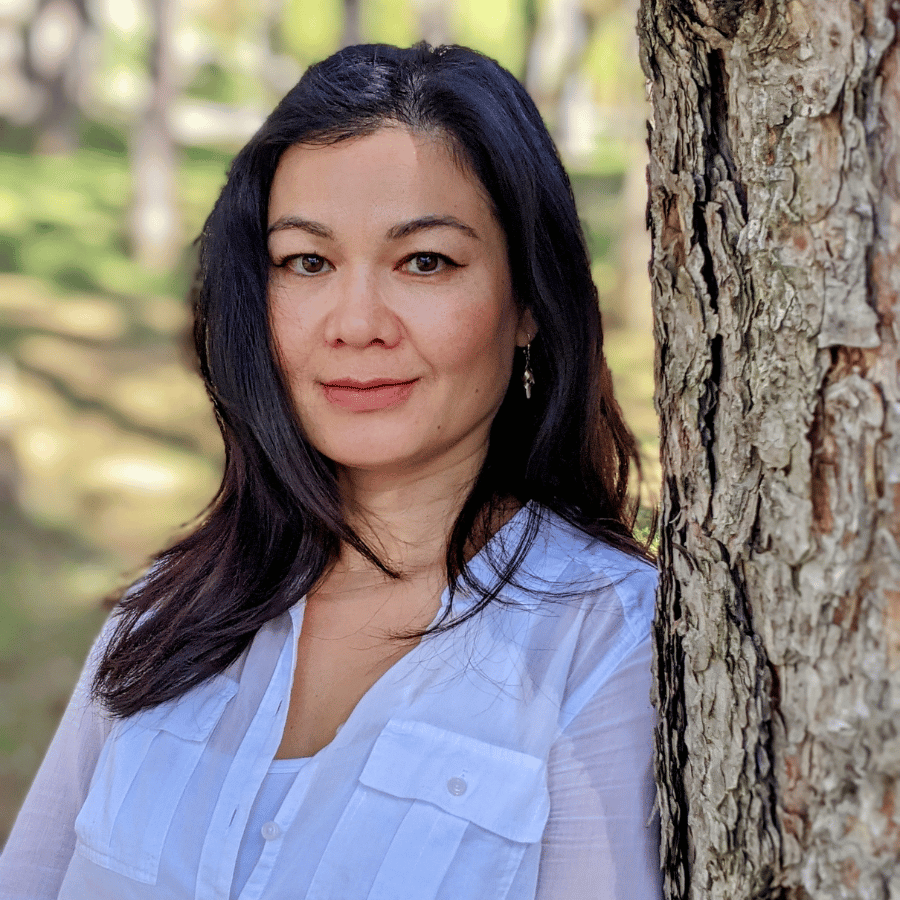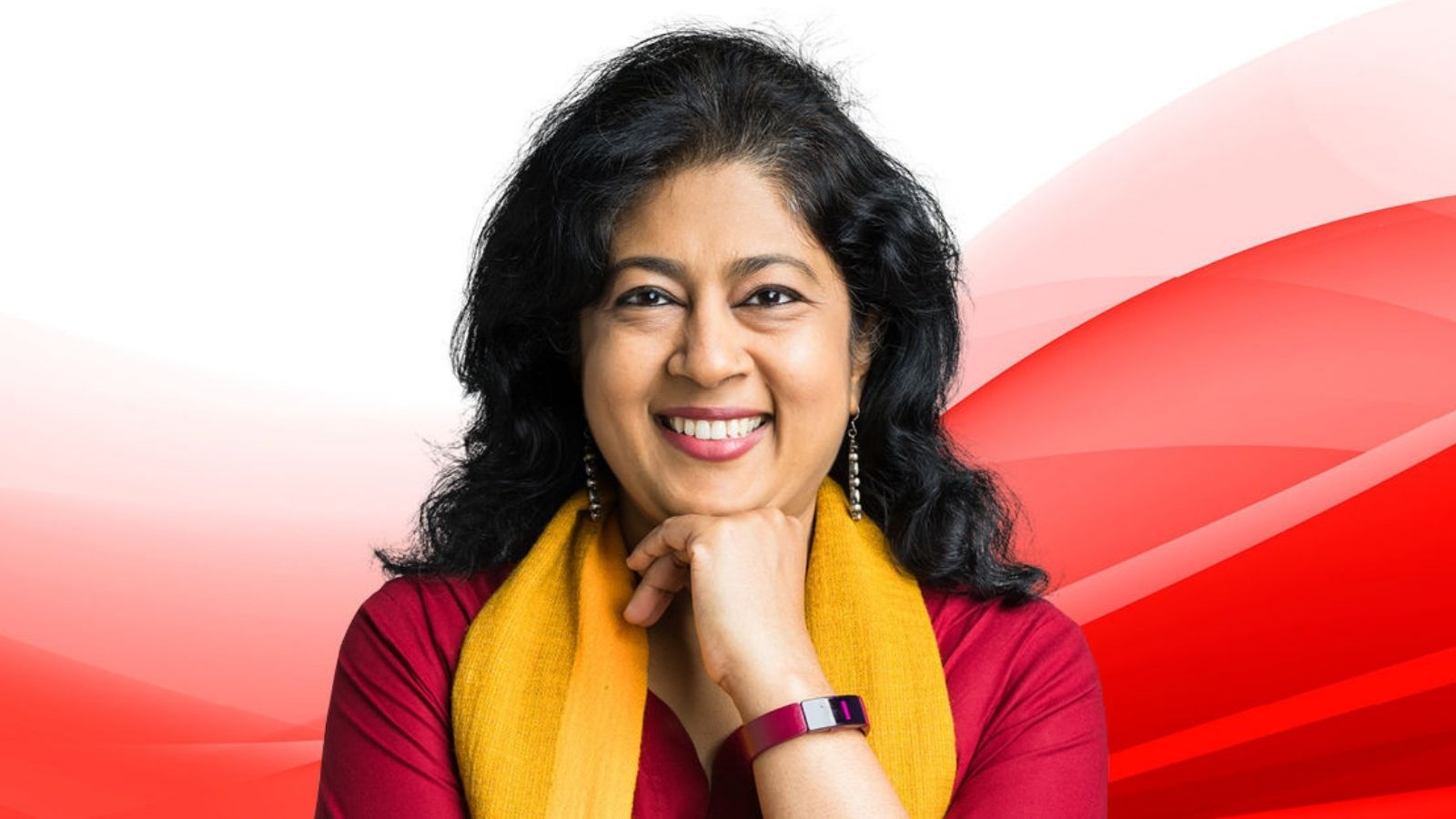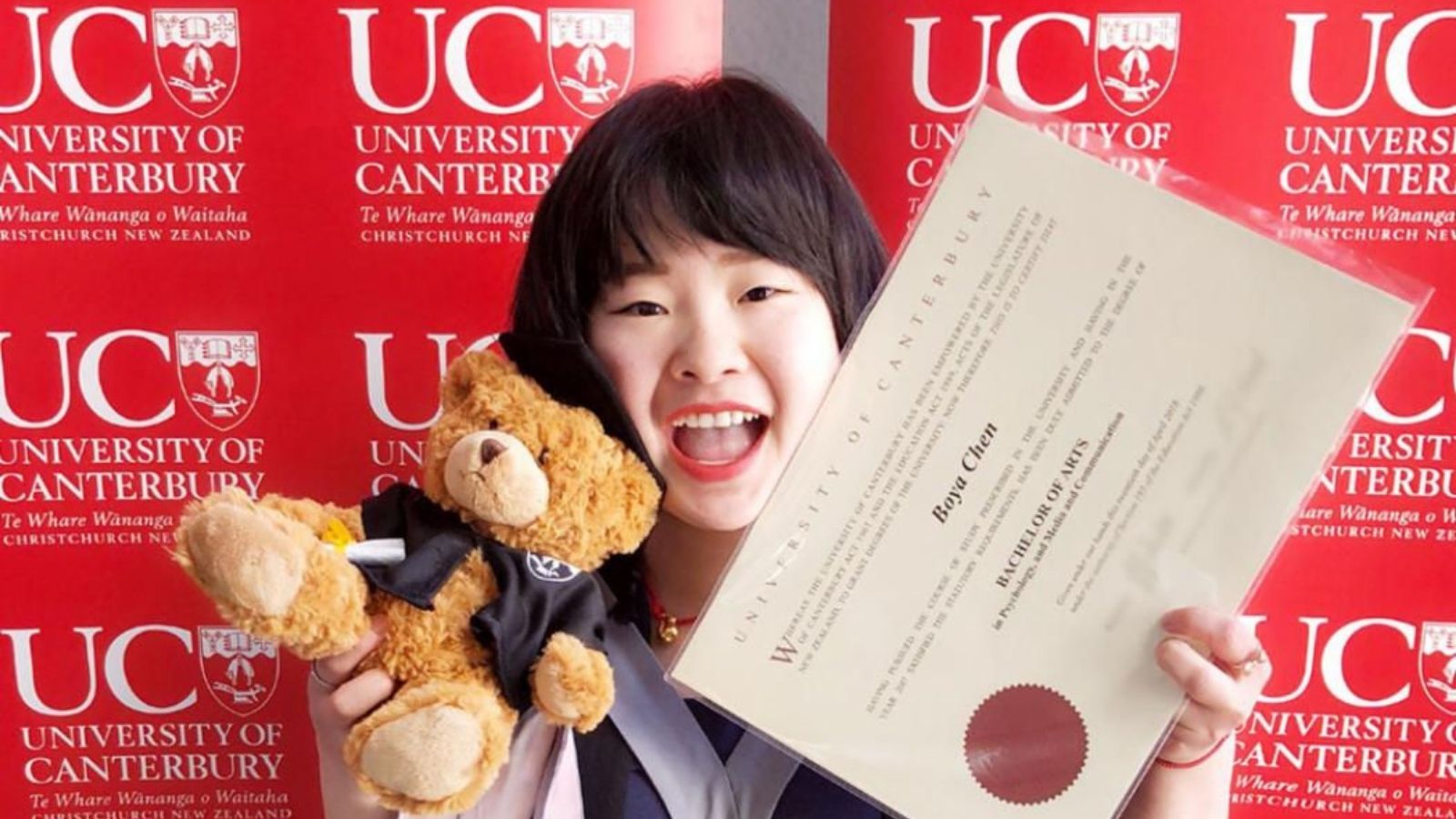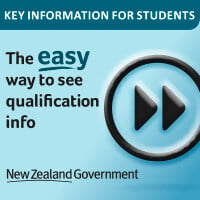Price
Domestic learners
$1,123* per 15 point course
International learners
$4,275* per 15 point course
*Price is approximate and subject to change based on elective course selection. Fees outlined are based on the 2026 fee schedule and are subject to revision each year. Prices include GST where applicable. Non-tuition fees, such as the Student Services Levy (SSL), will also apply.
Qualification
MStratCom
180 points
Duration tooltip: Duration is subject to course availability
3 years part-time
Entry times
13 July 2026
February 2027
July 2027
2028
Overview
Advance or start a new career in the dynamic field of strategic communication. Our online master's degree in strategic communication prepares you for diverse roles in professional media environments, including public relations, advocacy, and organisational communication across nonprofits, government agencies, companies and community groups.
You’ll develop skills in crafting effective messaging and campaigns by creatively understanding audiences, leveraging research and data analytics, while balancing organisational goals and navigating media ethics.
Designed for learners looking to grow or pivot their careers, this taught master's will help you hone your skills in public media relations and organisational communication — whether you have prior experience, or are seeking a career change. With eight advanced courses in strategic communication followed by a Strategic Communication Portfolio course, this flexible online degree ensures you graduate with a collection of work to showcase your advanced expertise for career success.
Plans change? No problem. With flexible study options, you can choose to exit early and graduate with a 60-point Postgraduate Certificate or 120-point Postgraduate Diploma in Strategic Communication.
More ways to study
Grow as you go — graduate early with a Postgraduate Certificate or Diploma if your plans change.
Requirements
To ensure that our learners have the necessary background and experience to succeed in our online master's degree in communications, you will need to have completed one of the following:
- A bachelor's degree with at least a B Grade Point Average in your 300-level or equivalent courses OR
- A bachelor's degree and relevant work experience as approved by the Amo Matua, Toi Tangata | Executive Dean of Arts or delegate.
(Note: Your eligibility will be considered upon enrolment, with successful applicants approved as students by the Amo Matua, Toi Tangata | Executive Dean of Arts or delegate.)
If English is your additional language, you are also required to meet UC's English language requirements with an IELTS (Academic) score of 6.5, and no individual score below 6.5. Preference will be given to learners with a score of 7 or over.
For the full entry requirements, see the Regulations for the Master of Strategic Communication or use the admission requirements checker.
Don't meet these requirements? You may be eligible to pathway into the Master of Strategic Communication through a Postgraduate Certificate (which includes four courses from the master's degree) or a Postgraduate Diploma (which includes eight courses from the master's degree). Contact us to discuss your options.
Unsure about your suitability?
As part of our application process, your eligibility will be assessed by our communication academic team to make sure that your academic and/or professional background meets the entry criteria. Unfortunately our Tuihono UC | UC Online team cannot confirm your eligibility before your application is submitted, beyond referring you to the requirements above. We are happy to help answer any general questions you have about the programme or online learning, however. You can get in touch with us here.
Not sure if you want to study online or on-campus?
Whether you decide to study online or on-campus, our UC team is here to support you every step of the way.
Structure
This master's degree in communications can be studied part-time over a minimum of three years, subject to course availability. It must be completed within five years.
Time commitment
Unless otherwise stated, Tuihono UC | UC Online learners study across terms, rather than semesters. We have four terms per year which consist of nine-weeks of study (including a one-week study break), followed by a two-week period of marking and feedback.
Part-time learners complete one 15-point course every term, requiring approximately 18.5 hours of study per week. Study time includes taking in course material, reflection time and writing assessments. Our master's degree in strategic communication is flexible, enabling you to plan your study around your other commitments.
Upcoming term dates
Our current learning dates can be found below (please note: these dates exclude our period of marking and feedback).
2026 dates:
- 2 February – 5 April 2026
- Study break: 2 – 8 March 2026
- 27 April - 28 June 2026
- Study break: 25 – 31 May 2026
- 13 July - 13 September 2026
- Study break: 10 – 16 August 2026
- 28 September - 29 November 2026
- Study break: 26 October - 1 November 2026
Please note: these dates are provisional and may be subject to change.
Begin

Start your learning journey with four foundational courses in strategic communication.
You'll learn how to build influence with diverse audiences and develop the skills needed to create impactful communication campaigns to kickstart your strategic communication master's degree.
Course taken: Building Influence (COMS430), The Dynamics of Publics (COMS431), Building Impactful Campaigns (COMS432) and Campaign Success (COMS433).
Graduation option: we get it — plans change! At the end of these courses, you can choose to exit early with a Postgraduate Certificate in Strategic Communication.
Develop
Deepen your expertise and advance your master's degree in communications through two key courses in data analysis and use, plus two electives in an area of your choice. Elective options include two 15-point papers from an area of strategic communications, digital marketing, or another 400 or 600-level online course (subject to academic background and faculty approval).
Courses taken: Mapping Meaning (COMS434), Good Data and How to Use It (COMS435), plus two 15-point elective courses.
Graduation option: at the end of these four courses, you can choose to exit early with a Postgraduate Diploma in Strategic Communication.
Apply
Put your skills into practice by creating your Strategic Communication Portfolio (COMS693). This 60-point course will help you build a professional portfolio, showcasing your expertise and setting you up for career success.
Course taken: Strategic Communication Portfolio (COMS693).
Master
Graduate with a Master of Strategic Communication from Te Whare Wānanga o Waitaha | University of Canterbury, equipped with the knowledge and experience to lead in the field of strategic communication.
Careers and job opportunities
Graduates of this programme are ready to lead strategic, professional communications across a wide range of industries and organisations, from government departments to PR agencies.
Throughout the programme, you’ll build advanced communication skills and gain the confidence to effectively engage clients, stakeholders, and communities. The final portfolio course gives you the opportunity to showcase your capabilities and take your next steps with a strong body of work behind you.
Check out our UC graduate stories to see where a Master of Strategic Communication online could take you!
What you'll study
You'll study eight NZQF level 8 postgraduate courses for this online master's in communication, concluding with a NZQF level 9 professional portfolio (COMS693) showcasing your strategic communication skills.
Elective courses: towards the end of their MStratCom, learners can choose two elective courses as part of their degree. Options include the strategic communication or digital marketing options listed below, or another 400 or 600-level course (subject to academic background and faculty approval). Full elective options will be confirmed with enrolled learners.
Description
Strategic communication refers to the practice and study of the deliberate and purposive communication that organisations engage in to reach their goals. Organisations communicate strategically to change public opinion, promote public health, advance human rights, attract new volunteers, convince employees to embrace a change initiative, manage crises, and promote their “brand”, among many other things. This course will explore strategic communication scholarship about key issues that organisations must tackle (e.g., transparency, accountability, and identity). The course connects theories to real-life case studies and puts particular emphasis on ethical strategic communication practice.
Learning Outcomes
On completion of the course, it is expected that learners will be able to:
- Explain key theoretical concepts and theories underpinning strategic communication research.
- Apply strategic communication theories to case studies of organisations’ strategic communication.
- Critically evaluate organisations’ strategic communication efforts.
- Identify and discuss ethical dimensions of organisational strategic communication.
- Critically evaluate the use of AI and emerging technologies in strategic communications.
Description
To achieve strategic communication goals, organisations must engage with their publics. This course problematizes what “publics,” “audiences,” "partners” and “stakeholders” are. It focuses on research on audience engagement and response to strategic communication efforts, and it considers how organisations can move from unidirectional to two-way and dialogic models of communication. The course connects theories to real-life case studies and puts particular emphasis on ethical issues pertaining to equity, diversity and inclusion.
Learning Outcomes
On completion of the course, it is expected that learners will be able to:
- Explain key theoretical concepts and theories of strategic communication publics.
- Compare and critically evaluate competing communication models underpinning research on publics.
- Apply strategic communication theories to case studies of publics’ response to and engagement with strategic communication efforts and initiatives.
- Identify and discuss ethical dilemmas around equity, diversity, and inclusion.
Description
This is a course about planning media campaigns that focuses on how data analysis underpins decisions about goals, objectives, publics, and campaign strategies. The course will discuss campaigns’ purposes and effects and document the key processes involved in developing a campaign plan. Students will develop practical skills as they create an in-progress report about a campaign that they are preparing for a client.
Learning Outcomes
On completion of the course, it is expected that learners will be able to:
- Identify the key processes involved in developing a campaign.
- Describe how data analysis informs campaign planning.
- Create campaign goals and objectives.
- Develop and pitch campaign strategies.
- Critically evaluate ethical issues in data use and data analysis.
Description
This is a course about planning media campaigns that focuses on the development of campaign messages, the selection of appropriate tactics, and ethical issues involved in campaign development. Students will apply knowledge and skills developed through the course to present a campaign pitch to a client. The course will also introduce students to various debates about and methods for evaluating campaigns.
Learning outcomes
On completion of the course, it is expected that learners will be able to:
- Identify the key processes involved in developing and implementing a campaign.
- Select and justify specific campaign tactics.
- Develop and pitch campaign messages and tactics to a client.
- Critically evaluate ethical issues in campaign development.
- Select appropriate methods to evaluate a campaign.
Description
Qualitative research is a creative, adaptable form of inquiry that allows strategic communication professionals to explore and gain in-depth understandings of unique, local human experiences and social and communication practices. This course uses experiential learning to enable students to explore how qualitative methods such as interviews and focus groups can shed light on strategic communication issues. It also introduces students to thematic data analysis as a strategy for analysing qualitative data as well as data management tools such as NVivo. Because the researcher is the “instrument” of data collection and analysis, the course also invites students to reflect on their own positionality as researchers and identify ethical issues in qualitative research.
Learning outcomes
On completion of the course, it is expected that learners will be able to:
- Develop interview and focus group questions.
- Conduct interviews and focus groups that will enable them to investigate strategic communication issues in an ethical way.
- Apply foundational skills in qualitative data analysis.
- Reflect on their own positionality as researchers and how this shapes data collection and analysis.
- Identify and manage ethical issues in qualitative data collection and analysis.
Description
Strategic communication often relies on analysis of quantitative data. Public communication, your Netflix movie recommendations, or targeted advertisements on social media all rely on making sense of data. This course introduces you to basic skills in survey development and statistical analysis. This course aims to provide students with practical experience analysing, interpreting and communicating quantitative data.
Learning outcomes
On completion of the course, it is expected that learners will be able to:
- Develop survey questions to gain data that could inform an organisation’s strategic communication.
- Choose and carry out an appropriate statistical analysis for given hypotheses and data.
- Recognise and apply data ethics principles, including principles of the Māori governance data model, indigenous perspectives, and lived realities, within quantitative data analysis.
- Communicate quantitative data convincingly.
Description
In today’s digital and interconnected world, organisations face crises that can shape their reputations, stakeholder trust, and long-term viability. This course provides students with the theoretical foundations and practical skills necessary to manage crises effectively. Students will explore crisis typologies, strategic response models, media relations, stakeholder communication, and ethical considerations in crisis management. Through case studies, real-world simulations, and expert insights, students will learn how to analyse crises, develop strategic responses, and implement effective communication strategies across various platforms.
Learning outcomes
On completion of the course, it is expected that learners will be able to:
- Define and differentiate crises, issues, and reputation threats in strategic communication.
- Analyse crisis situations using theoretical frameworks and historical case studies.
- Develop a comprehensive crisis communication plan, including key messages, stakeholder engagement, and digital response strategies.
- Apply strategic messaging to different crisis scenarios through media relations, press releases, and social media responses.
- Assess the ethical and legal considerations in crisis communication, including cultural sensitivity and corporate responsibility.
- Evaluate the role of leadership, organisational culture, and corporate reputation in crisis prevention and response.
- Engage in real-time crisis simulations to practice decision-making, message development, and response tactics.
- Critically examine crisis response effectiveness using metrics, media analysis, and public sentiment.
Description
This course builds knowledge and skills in the theory and practice of strategic leadership communication. With a focus on internal strategic communication issues such as change management, workplace polarization, and lack of employee voice, students learn to analyze and foster authentic, collective, and collaborative forms of leadership communication. The course compares research on leadership communication with selected leadership theories and applies them to case studies. Students will use their theoretical toolkit to evaluate how collaborative methods shape communication dynamics.
Learning outcomes
On completion of the course, it is expected that learners will be able to:
- Explain key concepts, frameworks, and theories of leadership and leadership communication.
- Apply and justify how they use specific leadership and leadership communication theories to analyse strategic leadership communication.
- Critically evaluate leadership methods for fostering collaborative team and group practices.
Description
This course equips graduate students - whether launching, pivoting, or advancing their careers - with the tools and insights needed to thrive in the dynamic field of strategic communication. Through career mapping, hands-on workshops, industry guest speakers, and applied projects, students will develop essential skills in job searching, networking, and long-term career planning. The course explores diverse pathways in corporate communication, public relations, consulting, government, non-profit, and digital media. By the end, students will have a personalized career strategy, a professional branding portfolio, and the confidence to navigate and excel in their chosen field.
Learning outcomes
On completion of the course, it is expected that learners will be able to:
- Assess their professional strengths, skills, and career goals in strategic communication.
- Analyse diverse career paths, industries, and roles in strategic communication.
- Develop a strategic job search plan, including resume building, networking, and interview preparation.
- Create a professional digital presence, including LinkedIn optimization and personal branding.
- Analyse trends in strategic communication employment, including consulting, agency work, corporate, government, and freelance opportunities.
- Develop key workplace skills, including leadership, negotiation, and professional communication.
- Engage with industry professionals, gaining insight into the challenges and opportunities in different career paths.
- Create a long-term professional growth plan, incorporating continued learning and career development strategies.
Description
This course offers an advanced examination of marketing practices on the Internet. It draws specific attention to the role of online, mobile, and social media marketing techniques on contemporary business practices. The course prepares learners for using digital marketing platforms and decision making in the modern workplace. You'll learn through a combination of theoretical study and hands on experience with online tools, such as Google Analytics. Concepts will be drawn from a variety of sources to help understand how the Internet can be used as not only a communication tool, but also a medium of exchange and engagement. Theories and concepts will be drawn from a variety of sources to aid in your understanding of the role the Internet plays in organisations' marketing endeavours. The course extends the existing marketing offerings by going into far greater depth with online and digital media.
Learning Outcomes
On completion of the course, it is expected that learners will be able to:
- Describe and apply the core concepts associated with digital marketing.
- Utilise popular online marketing platforms, such as Google Ads and Google Analytics, to make business decisions.
- Critique the impact of digital marketing on business decision making and on business outcomes.
- Explain the differences between the different digital marketing tools and assess their appropriateness for use in a particular business situation.
- Draw on relevant literature, case material and real-world examples, including kaupapa Māori work, work that speaks to Pacific initiatives, or other culturally relevant cases and apply this to the digital marketing world.
- Explain how digital marketing can play a role in the future of business practice to reach and engage with a diverse population base.
This course is part of our online Postgraduate Certificate in Digital Marketing.
Description
This course aims to increase learners’ expertise in social media marketing and content creation. It focuses on key areas such as developing effective social media strategies, creating engaging content, and leveraging social media analytics for business success. The goal is to provide learners with techniques to build communities and drive engagement whilst effectively measuring the success of both paid and organic campaigns. By covering these key topics, the course seeks to enable learners to develop and execute effective social media and content creation strategies in today's dynamic and competitive digital landscape.
Learning Outcomes
On completion of the course, it is expected that learners will be able to:
- Discuss the role of social media in modern marketing and the significance this can play for brands.
- Develop skills in creating and curating engaging content for social media platforms, along with exploring the technologies available for content creation.
- Explore and analyse how to build, maintain and manage social media presence, along with the importance this plays within a wider brand communications strategy.
- Measure and analyse the effectiveness of social media marketing efforts, from both a paid and organic perspective by understanding key metrics and how these can be optimised to drive success.
- Draw on relevant literature, case material and real-world examples, including kaupapa Māori work, work that speaks to Pacific Initiatives, or other culturally relevant cases to create culturally responsive social media content.
- Develop strategic social media marketing plans tailored to specific business objectives whilst optimising effectiveness.
- Evaluate the risks of social media marketing and content creation.
This course is part of our online Postgraduate Certificate in Digital Marketing.
Description
This course requires students to produce (1) portfolio plan, (2) a portfolio of work in applied communication and (3) a personal reflection. Taken together, this work demonstrates an advanced applied strategic communication capability in relation to one or more fields of strategic communication. The course will be taught through a combination of supervised independent work, work-integrated learning and workshops.
Learning outcomes
On completion of the course, it is expected that learners will be able to:
- Independently plan and execute advanced-level projects in applied communication.
- Evaluate difficult and novel communicative problems that challenge public, organisational or community goals.
- Develop innovative or creative responses or solutions to communicative challenges.
- Show command of specialist skills and knowledge in strategic communication.
- Strengthen their identity and values as a communication professional through critical reflection.
Testimonials
Curious about what studying online is really like? Here's what recent learners thought of our online communication courses.
Hanna
Master of Strategic Communication
"If someone is thinking about joining the programme, I’d tell them this: It’s interesting, yes, but more than that, it’s immediately useful. Even in the middle of a very busy life, it feels like a pleasure to learn something that speaks to the work, the purpose and the people at the centre of it all. Communications is powerful. This course reminds you just how much."
Candace
Master of Strategic Communication
"I fit my study in around being a mum, working full time, renovating my house, and the myriad of other things that we have to do in everyday life! My [facilitator] has been really flexible with deadlines in that I can work ahead on some things, and I can take a couple of days grace period if I need to; if I have a really busy period at work."
Hanna
Master of Strategic Communication
"The course has changed the way I think about strategic communication by confirming what I’ve always felt – that communication is powerful, meaningful, and full of real-world consequences. It hasn’t rewritten my instincts, but it has strengthened them, giving me more confidence to make decisions that protect dignity, pace influence responsibly, and keep pressure on systems, not vulnerable communities. And maybe the biggest prize for me is how reassuring it’s been. It’s not just interesting, it’s instantly relevant."
Candace
Master of Strategic Communication
"I've worked in the communication field for over 20 years, and now everything that we're learning is information I wish I had 10 years ago! It's been more interactive than I thought, online, and I've gotten to know my fellow students as well, which has been really terrific."
Our people
This master's degree in communications is directed by Dr Kirstie McAllum and coordinated by Dr Samara Anarbaeva, with contributions from other industry professionals and Te Whare Wānanga o Waitaha | University of Canterbury academics.

Associate Professor Kirstie McAllum
Programme Director | University of Canterbury
Kirstie McAllum is an Associate Professor in the Department of Media and Communication at Te Whare Wānanga o Waitaha | University of Canterbury. Her research focuses on the meanings of non-standard work, the communicative patterns of collaboration and conflict, and compassion and care organizing in multiple health and social care contexts.
Kirstie is committed to working with community and organisational partners to envisage and implement strategies to create more compassionate workplaces.

Dr Samara Anarbaeva
Programme Coordinator | University of Canterbury
Samara Anarbaeva is an Associate Professor of Journalism and Public Relations at California State University and a Lecturer and Administrator for the Master of Strategic Communication at Te Whare Wānanga o Waitaha | University of Canterbury. Her research focuses on online pedagogy, crisis communication, social media, and influencer marketing.
As a communication consultant, she helps organizations with strategic planning, digital strategy, campaigns, crisis communication, and inclusive practices. Outside of work, she enjoys practicing yoga, sipping tea, and spending time outdoors.
Stay updated
If you’re keen to know more, stay updated on when enrolments open or ask a question, please sign up for updates about our strategic communication master's degree below.
Cap & minimum enrolment threshold: a minimum number of learners is needed for effective interaction and feedback, while a maximum cap of learners ensures high quality learning and support. If the minimum number of enrolments required for a course isn’t met, or the maximum cap is exceeded, learners will be given the option to defer their study or receive a refund.
FAQ
Graduates of this master's in communication will have advanced skills in communications writing and editorial knowledge for different kinds of media. You will be prepared to lead professional and business communications that go out to clients, and large audiences or communities.
Learners will find their skills highly valued within organisations involved in public policy and advocacy, government agencies, public relations, and also internal communications within companies.
Graduates of this strategic communication master's degree may also find work in a variety of fields such as news media, publishing, communications advisories, non-profit organisations, social media, and strategic marketing. This online degree prepares you for a career in complex, professional media for corporations, public relations, and advocacy.
In particular, the final 60-point course (COMS693 - Strategic Communication Portfolio) will give you a portfolio of work to showcase your advanced skills and knowledge.
The overall cost of tuition fees per 15-point course based on the 2026 fee schedule:
- for domestic learners is $1,123* incl GST
- for international learners is $4,275* plus GST if applicable.
Total programme investment for 180-point programme based on the 2026 fee schedule:
- for domestic learners is $13,481* incl GST
- for international learners is $51,000* plus GST if applicable.
Please note that the fees are charged on a per year basis and the amount charged reflects the number of courses/points enrolled in the current year. These are based on the 2026 fee structure and subject to revision – you can learn more about the University of Canterbury’s Tuition fee structure here.
Student Services Levy costs
Each year university students around Aotearoa New Zealand are charged a Student Services Levy (SSL) in addition to their tuition fees. All the SSL money collected can only be used for the benefit of students - never for academic or administrative costs.
The SSL is automatically calculated on how many points you enrol in per academic year, capped at a maximum of 150 points. Tuihono UC | UC Online learners are charged a reduced SSL rate, which is 20% of the usual on-campus student levy. This is calculated as $2.06 per academic point in 2026. You can learn more about the Student Services Levy here, and more about UC Support Services here.
In this online master's degree in strategic communication you'll study eight 15-point online strategic communication courses, exploring how to build influence with diverse audiences, create successful communication campaigns and lead communication strategies for crisis management and workplace engagement. You'll then showcase your advanced skills and knowledge through a Strategic Communication Portfolio (COMS693).
There are a range of options you can use to finance your master's degree in communications, which you can learn more about here.
Master's in communication learners have access to the same support services as on-campus students, including academic advising, technical support, and library resources. There are also great resources for both Canterbury based and remote learners at the UC RecCentre. Learn more here.
Learners also have the support of our Tuihono UC Learner Experience team.
Whether you need advice finding the right course for you or support with the enrolment process, we’re here to help! Contact our enrolment support team for course information, technical help and enrolment support.
Applications for this online programme are made online through our Tuihono UC | UC Online website – please sign up for updates to stay in the loop about when applications open.
If you are a domestic learner, the below process will apply. If you are an international learner, the application process is slightly different, and we recommend getting in touch with our enrolment team at info@uconline.ac.nz to answer any questions.
For domestic learners, your application will be assessed by our academic team to make sure you meet all entrance criteria (including academic and english language requirements). We may be in touch to ask you further questions about your experience, or to request additional supporting documentation. If your application is accepted, you will be sent an 'Offer of Place' to let you know your enrolment has been conditionally approved.
Following this, we will generate an ‘Enrolment Agreement’ outlining your courses, fees and student agreement, which you need to sign and accept. Your enrolment is only complete when the fees outlined in this agreement are paid in full (view payment options), at which point you’ll become ‘Fully Enrolled’ and receive a ‘Welcome to Tuihono UC | UC Online’ email with details of your next steps to start learning. If you have any questions during the enrolment process, please get in touch with our team via info@uconline.ac.nz.
The Master of Strategic Communication is a standalone professionally relevant qualification, but graduates can go on to apply for an on-campus Doctor of Philosophy (PhD) in Media and Communication, or Journalism.
We are also developing our online offerings – if you'd like to hear about our latest news and offers, join our mailing list.
Yes, our online MStratCom is a real university qualification.
Successful learners will graduate with a Master of Strategic Communication from Te Whare Wānanga o Waitaha | University of Canterbury, and be eligible to attend graduation! You can either receive your testamur (qualification certificate) on-stage, or elect to receive your certificate in the mail.
This online master's in communication can be completed in three years of part-time study (subject to course availability), and must be finished within five years.
Bringing together the latest industry-informed learning applicable to your life and career, the Tuihono UC | UC Online master's degree in strategic communication gives you the same quality education as our on-campus programme, with the flexibility of online learning.
This includes 24/7 access, academic advice and technical support, giving you the support to study anywhere, anytime, at your pace.
An on-campus version of this strategic communication master's is available through the University of Canterbury. You can also explore other on-campus postgraduate media and communication qualifications.
We are also developing our online offerings – if you'd like to hear about our latest news and offers, join our mailing list.





